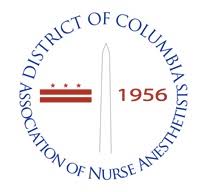In light of the growing concern surrounding the worldwide spread of Coronavirus Disease 2019 (COVID-19), the AANA has prepared practice resources to support CRNAs as they develop strategic steps for managing patients with expected or confirmed infection.* The following considerations are specific to the perioperative setting and summarize recommendations of national and international organizations including the Anesthesia Patient Safety Foundation.
- Enforce frequent, meticulous hand hygiene. Hand hygiene is the single most important measure in protection against cross infection. Hand washing is essential before and after donning or doffing Personal Protective Equipment (PPE).
- PPE must be available for all providers. N95 masks should be worn for all known or suspected cases of COVID-19, as well as for any asymptomatic open airway cases. A powered air-purifying respirator (PAPR) may also be warranted.
- Wear disposable OR caps and beard covers. Disposable fluid-resistant long-sleeved gowns, goggles and disposable full-face shields are recommended for frontline providers.
- Prior to intubation, don appropriate gloves, facemask/PAPR, eye shield and gown. Plan to limit the distance traveled with contaminated equipment. Double glove and use the outer glove to sheath the laryngoscope blade after intubating.
- Select the most experienced anesthesia professional to intubate the patient. Limit the number of staff members during airway manipulation to reduce the risk of unnecessary exposure.
- Allocate ORs specifically for patients with confirmed or suspected COVID-19. In addition, these patients should not be brought to preoperative holding or recovery areas.
- Take steps to minimize aerosolization of the virus. Preoxygenate the patient for five minutes with 100% FiO2 and perform rapid sequence induction (RSI) to avoid manual ventilation of the patient’s lungs. Use a video-laryngoscope to improve intubation success and avoid awake fiberoptic intubations, when possible. Atomized local anesthetic will aerosolize the virus.
- Place a high-efficiency hydrophobic filter between the facemask and breathing circuit or between the facemask and reservoir bag to avoid contaminating the atmosphere.
- Follow strict environmental cleaning and disinfection procedures. Dispose all used airway equipment in a double-zip-locked plastic bag for proper decontamination and disinfection.
*While these recommendations are tailored for patients with known or suspected COVID-19, it may be prudent to take these actions for all patients in this environment of rapid spread and unconfirmed cases.
References
1. World Health Organization. Clinical management of severe acute respiratory infection when novel coronavirus (2019-nCoV) infection is suspected, Interim guidance, https://www.who.int/docs/default-source/coronaviruse/clinical-management-of-novel-cov.pdf. Accessed February 27, 2020.
2. Centers for Disease Control and Prevention. Symptoms, https://www.cdc.gov/coronavirus/2019-ncov/about/symptoms.html. Accessed February 27, 2020.
3. Centers for Disease Control and Prevention. Interim clinical guidance for management of patients with confirmed coronavirus disease 2019 (COVID-19), https://www.cdc.gov/coronavirus/2019-ncov/hcp/clinical-guidance-management-patients.html. Accessed February 27, 2020.
4. Anesthesia Patient Safety Foundation. Perioperative considerations for the 2019 Novel Coronavirus (COVID-19), https://www.apsf.org/news-updates/perioperative-considerations-for-the-2019-novel-coronavirus-covid-19/. Accessed February 27, 2020.
Visit www.aana.com/COVID-19 to access more information. Be sure to frequent this page for updated resources from respected national and international organizations. The AANA will continue to monitor the situation and support CRNAs as we work together to safely deliver patient care and keep ourselves and the communities we serve healthy.
For questions and concerns, please contact the AANA Professional Practice Division at [email protected] or 847-655-8870.
Brett Morgan, DNP, CRNA
Senior Director, Education and Practice
(Information provided by AANA)
